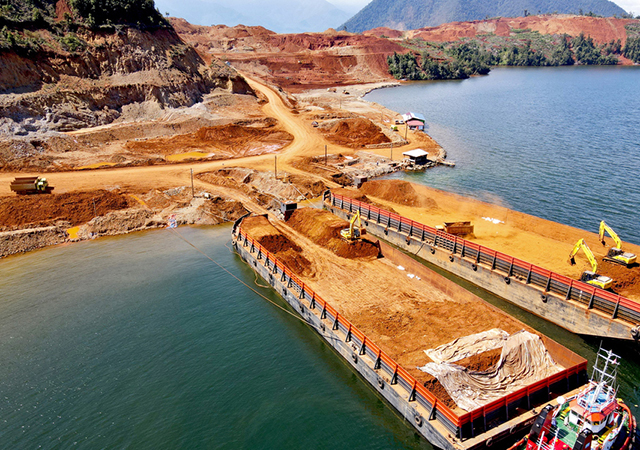

The extraction of nickel, a crucial element for clean energy technologies, requires enhanced policies to safeguard local environments and communities, according to MIT researchers.
As the global effort to reduce carbon emissions intensifies, the demand for metals and minerals essential for clean energy technologies is skyrocketing. This surge can strain existing supply chains and negatively impact local ecosystems.
A recent study published in Joule by Elsa Olivetti, a professor of materials science and engineering and director of MIT’s Climate Project, alongside recent graduates Basuhi Ravi and Karan Bhuwalka, investigates the critical role of nickel, which is vital for electric vehicle (EV) batteries, solar panels, and wind turbines.
The researchers explored the robustness of nickel supply and its implications for local environments, economies, and communities. Here, they share insights from their findings.
Why is nickel increasingly vital in the clean energy sector, and what supply chain challenges exist?
Olivetti: Nickel's importance is rising due to its use in EV batteries and renewable technologies like wind and solar. High-purity nickel sulfate is essential for the cathodes of EV batteries, enhancing energy density and driving range. As the world shifts from fossil fuels, the demand for EVs-and consequently for nickel-has surged and is expected to continue growing.
The nickel supply chain involves mining, processing, and refining to produce battery-grade nickel sulfate. Key challenges include land use issues during mining and emissions during processing. Nickel mining is land-intensive, leading to deforestation, community displacement, and potential contamination of soil and water from mining byproducts. Processing often relies on fossil fuels, contributing to emissions of particulate matter and sulfur oxides. Some newer processing methods are particularly energy-intensive, potentially doubling the carbon footprint of nickel-rich batteries compared to current averages.
What role does Indonesia play in the global nickel supply, and what are the consequences of extraction practices there and in other major producing nations?
Ravi: Indonesia is pivotal in the global nickel market, possessing the largest nickel reserves and supplying nearly half of the world’s mined nickel in 2023. Nickel production in the country has increased tenfold since 2016, driving economic growth in some areas but also leading to significant environmental and social issues.
The expansion of nickel mining in Indonesia has been associated with health problems due to air pollution, as well as deforestation in biodiversity-rich regions. Reports indicate displacement of indigenous communities, land disputes, water rights conflicts, and poor job quality for mine workers, underscoring the social inequities involved. Similar issues persist in other major nickel-producing countries, where mining can harm the environment and disrupt local livelihoods.
Globally, Indonesia’s reliance on coal for nickel processing-particularly in energy-intensive smelting and leaching of laterite-results in high carbon emissions compared to other leading producers like Australia.
How can industry and policymakers address the growing demand for nickel while enhancing environmental safety?
Bhuwalka: In consumer countries, policies can promote “discerning demand,” encouraging companies to source nickel from sustainable producers. Regulations that set environmental standards for imported materials, such as carbon emission limits, are vital. Initiatives like the EU’s Critical Raw Materials Act and the U.S. Inflation Reduction Act can support responsible sourcing. Additionally, governments can leverage their purchasing power to favor sustainably produced nickel in public procurement, influencing industry practices and encouraging sustainability standards.
On the production side, countries like Indonesia can adopt policies that mitigate the environmental and social impacts of nickel extraction. Strengthening environmental regulations and enforcement, setting stricter pollution limits, and ensuring responsible waste management are key steps. Engaging communities, implementing benefit-sharing mechanisms, and investing in cleaner processing technologies are also crucial.
Internationally, harmonising sustainability standards and facilitating technology transfer between developed and developing nations can create equitable conditions and prevent unsustainable practices. Responsible investment strategies from international financial institutions that prioritise projects meeting high environmental and social standards can further contribute to a stable and sustainable nickel supply chain.

